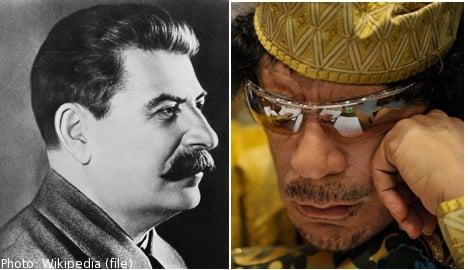“The benefits of a democratic society needs to be discussed and debated in schools, in the press and broadcast media and in society as a whole,” said Staffan I. Lindberg, research director for the World Values Survey Sweden, to The Local.
The new World Values Survey shows that 21 percent of 18- to 29-year olds in Sweden would consider changing party allegiance for a small cash imbursement.
Among the country as a whole the number dropped to 7 percent. Of those over 40 the number was 2 percent.
More than a quarter of the younger Swedes were also willing to give their vote to a MP in exchange for a job for themselves or a close friend or relative.
In a debate article in Friday’s Dagens Nyheter (DN) Lindberg wrote that scientists are seeing worrying threats against the foundations of democracy in Sweden, at the same time as dictatorships in the Middle East and North Africa are falling under the pressure of young people’s demand for a right to vote.
According to the survey, 26 percent of 18-29-year-olds thought that it would be good or very good if a “strong leader who didn’t have to care about a Riksdag or an election” ruled Sweden.
Older generations value democracy higher. 97 percent of those over 30 stated that it is important to live in a democratic country.
It is significant, wrote Lindberg, that the randomly chosen group of Swedes forming the basis for the study represented voters from across the political spectrum.
The participants were all in employment, had the same basic education and the same faith in institutions such as church, university, national defence and different types of organisations. None were more or less willing to take part in any forms of protests or demonstrations.
According to Lindberg some of the explanation may come from the “mechanic” view on democracy taught in Swedish schools, on young Swedes’ prevalent lack of confidence in the political parties and a more narrow consumption of news than earlier generations.
“The younger generation have a more individualistic approach. But they must realize that in order to be free to further individual gains, society must safeguard the general democratic rights which this builds on,” he said to The Local.



 Please whitelist us to continue reading.
Please whitelist us to continue reading.
Member comments